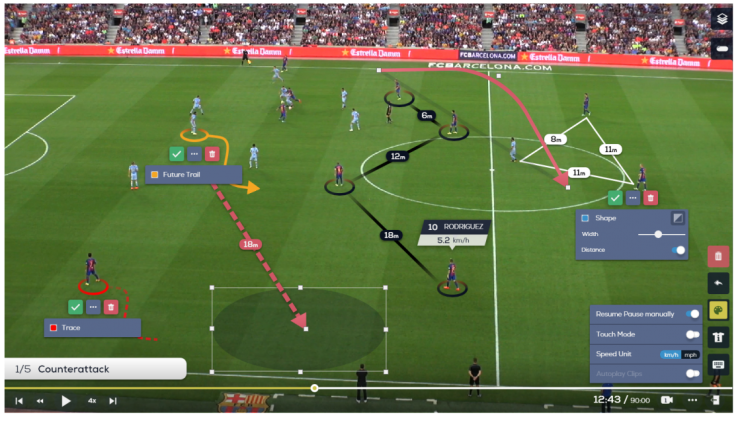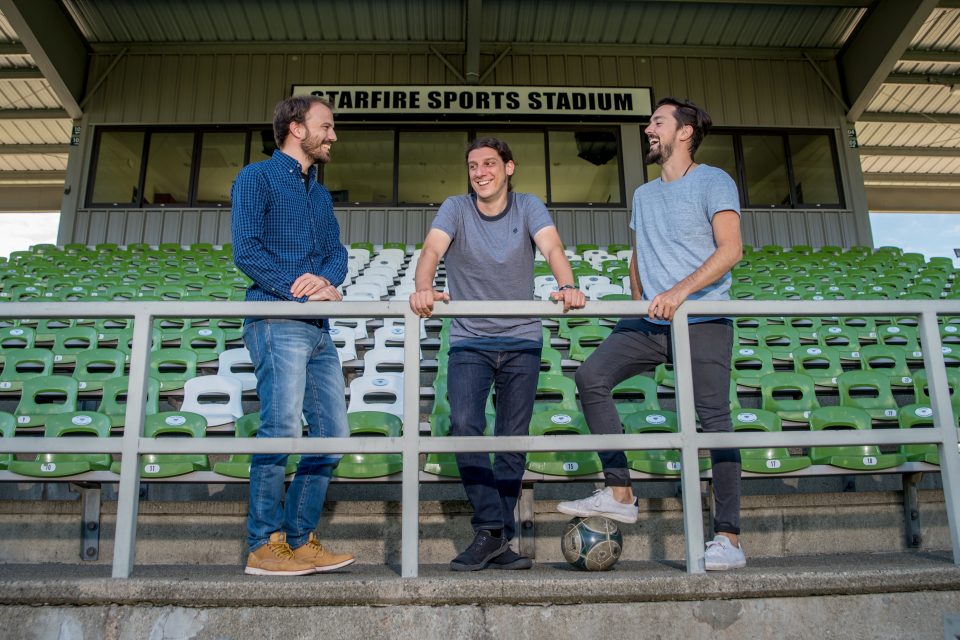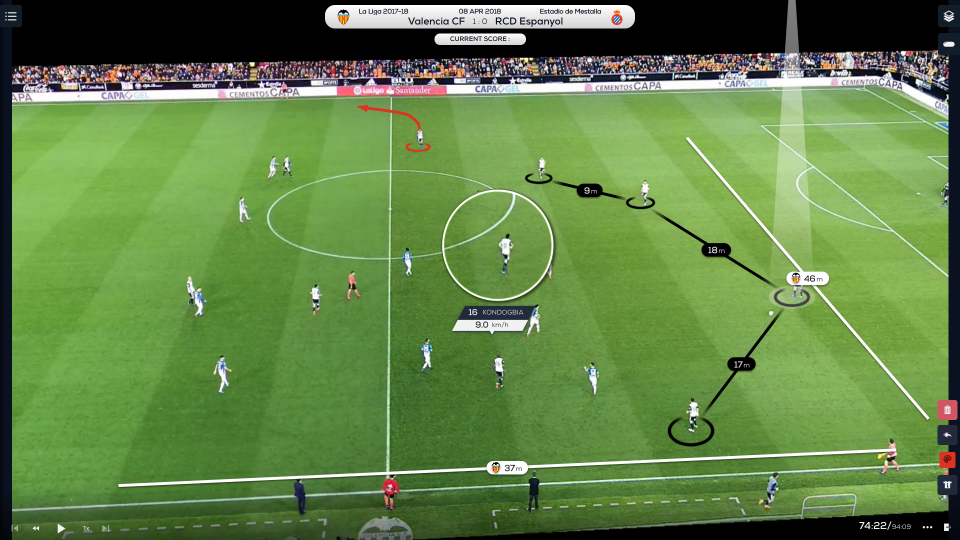Metrica Sports: Meet the tech company which works with FC Barcelona giving away its football analytics software to amateurs

Barcelona were one of Metrica Sports’ first clients but it was when the video and data analysis provider signed up Stockport County that its founders knew they were really onto something.
The company, created in 2013 by three football-mad neuroscience PhD students, proved quick to gain a foothold with a handful of elite clubs thanks to its innovative, AI-led software.
Metrica’s decision in 2019 to launch a pared-down, more affordable version of its Play platform aimed at clubs below the top level, however, proved a masterstroke.
“This has exploded,” chief executive Ruben Saavedra tells City A.M.
“In a year we closed 85 clients, all over the world, in all five continents. Academies and clubs in Australia, South Africa, Morocco. In the US we have 10 colleges.”
Despite only having eight full-time employees, Metrica now has almost 100 teams on its books, including the Portuguese national side, Villarreal, Nice, Dinamo Zagreb and Santos.
It cannot talk about all of its clients, but the fact that Barcelona are among them has been widely reported.
Since launching its basic €1,499-per-year package, Metrica is signing up 12-16 more sides every month, says Saavedra.
In some markets, they have collaborated with teams right down the football pyramid, such as Stockport, currently of England’s fifth tier.
“This has proven that our vision was correct and that there was a need for video analysis,” he adds. “We are convinced there is a huge market for this.”
Democratising data analysis even further
Now the company has taken the democratisation of data analysis even further, making a free version of its software available to anyone.
It means that amateurs now have access to the same tools as coaches at the best teams, albeit with less automation.
Since the free product was launched in November, more than 6,000 users have signed up.
For Saavedra’s two South American co-founders, Bruno Dagnino and Enzo Angilletta, it fulfils a mission to empower would-be analysts in poorer countries.
“The vision of the founders was always to provide solutions like the one elite clubs had to the Argentinian people,” says Catalan Saavedra.

Metrica’s pivot to clients lower down the food chain came after its founders realised that nearly all matches are filmed now, even those at junior level.
“You can record the game with your iPhone, GoPro, handheld camera, super-sophisticated automatic recording system, even drone footage – we can track it,” says Saavedra.
Working with smaller teams also makes business sense. Emerging rivals have focused on landing top clubs, leaving Metrica able to hoover up other work.
The company also has plans to monetise the free version of its product by charging users to unlock specific features.
Metrica Sports, their past and future
Metrica’s founders first spotted a gap in the market while studying together in Amsterdam eight years ago.
Back then, only a few clubs had access to the data used by media to, for example, illustrate heat maps. Fewer still knew how to use it.
Having initially planned to be consultants advising teams on data optimisation, Saavedra and Dagnino quickly realised football analysis was video-centric.
Enter Angilletta, who helped build software that removed the need for someone to manually tag events, saving club staff significant time.
Teams can use Metrica’s software for all sorts of things. But, essentially, it is for analysts to show whether players did what they were asked to in specific situations.
For instance, that might be how a team reacted when their opponents entered the final third or switched the play from one flank to another.
Saavedra believes the advent of data analysis in football has led to teams placing greater emphasis on how their opponents play.
“[Pep] Guardiola is a guru in that area,” he says. “He has a very defined way of playing, but if you watch Manchester City there are always small changes [in tactics between games].”

More innovation is on the way that will change the game further, especially as data becomes cheaper and more clubs expand their analysis departments.
“There’s a lot going on behind the curtains,” he says.
“Decision-making at the elite level is very much data-driven and it will be more and more so.
“It will go down slowly, but as data gets cheaper and new technology comes in – and we want to lead in that area – it will be accessible for lower tiers.”
He adds: “Hopefully there will be more Peps, the old 60-70 year old coaches will retire and new coaches will come in who are much more analytical. It’s a generational thing.”
For further information or to download the free tool please visit: https://metrica-sports.com/
